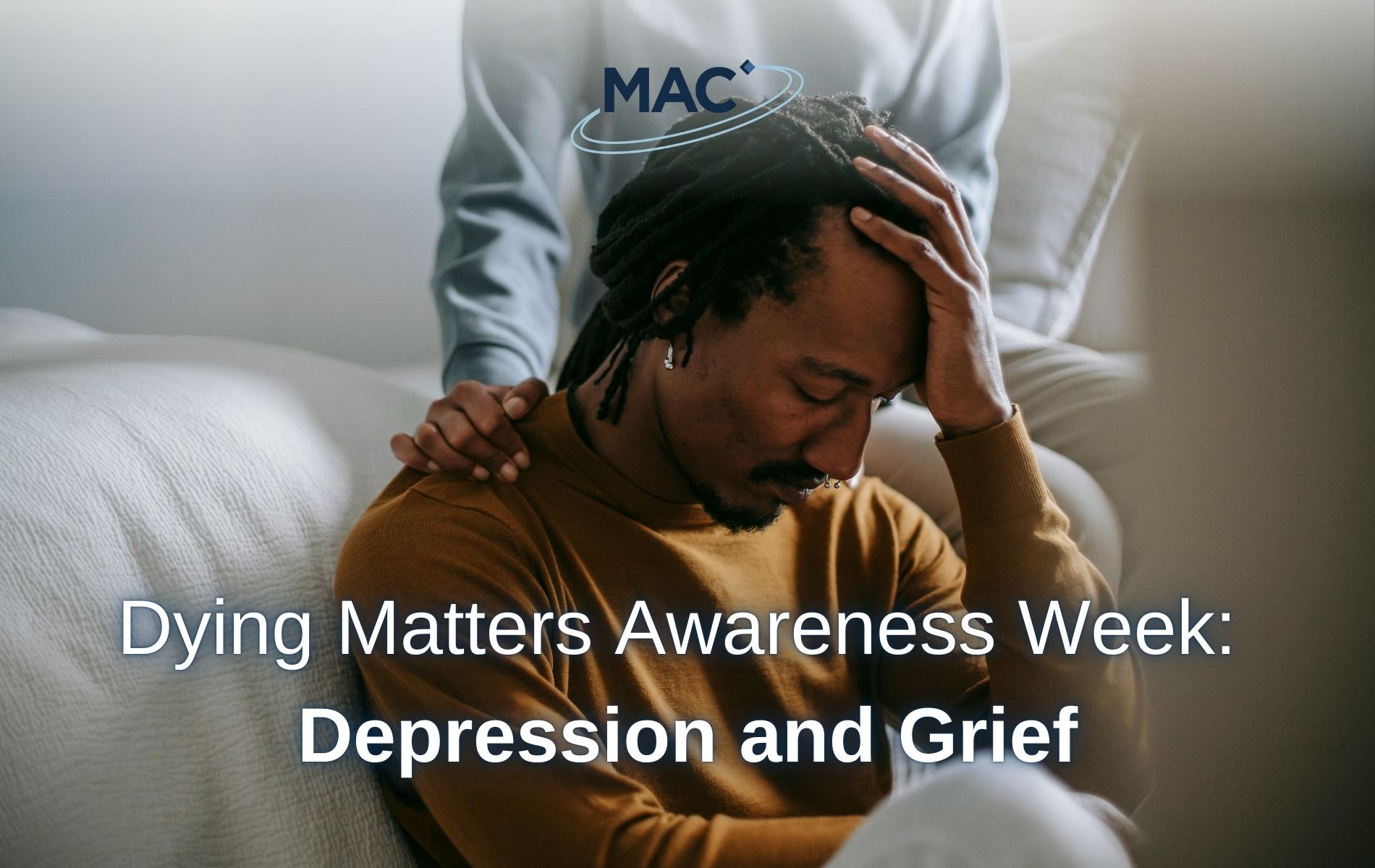As we mark Dying Matters Awareness Week, it’s essential to acknowledge the profound emotional experiences many people face when dealing with death and dying. Two of the most commonly intertwined experiences are depression and grief. While they are distinct, the overlap between them can complicate the grieving process and leave individuals feeling isolated and misunderstood.
What is Grief?
Grief is a natural, multifaceted response to loss. It encompasses a wide range of emotions, from sadness and anger to confusion and even relief. Grief can affect us emotionally, mentally, and physically, manifesting through tears, fatigue, insomnia, or loss of appetite.
In a population-based study of adults aged 40 and older, approximately one-third reported that they have experienced severe grief after the loss of a loved one1.
The grieving process is unique to each person, with no definitive timeline or “correct” way to mourn. Some may feel their pain acutely for weeks, months, or years, while others find their grief gradually softening over time.
Understanding Depression
Depression is a mental health condition characterised by persistent sadness, lack of interest or pleasure in activities, and feelings of hopelessness. Around 1 in 6 people in the UK say they experienced moderate to severe symptoms of depression2.
Unlike grief, which often comes in waves and can include moments of joy or comfort, depression tends to be more constant and all-encompassing.
Depression can strip away the ability to feel anything at all, also known as anhedonia, leaving only numbness and despair. It often interferes with daily life, making simple tasks feel overwhelming or impossible; up to 70% of people living with depression experience this side effect3.
The Overlap Between Grief and Depression
When someone is grieving, symptoms of depression can emerge or intensify. This overlap is often referred to as “complicated grief” or “prolonged grief disorder” when the mourning process becomes stuck and prevents the person from healing. Around 7 to 10 percent of people who are grieving go on to develop prolonged grief disorder4.
It’s also possible for someone who has a history of depression to experience more intense or prolonged grief after a loss4. The overlap can be particularly challenging because it can be hard to distinguish between natural grief and clinical depression.
How to Tell the Difference
It’s natural for grief to bring about sadness, exhaustion, and even withdrawal. However, there are some key differences to be aware of:
- Grief often involves a mix of emotions, including positive memories and moments of joy, even during sadness.
- Depression tends to feel all-encompassing and persistent, with little to no relief from feelings of hopelessness.
- Grief usually becomes less intense over time, while untreated depression often remains constant or worsens.
If symptoms persist beyond what feels manageable or begin to interfere with daily functioning, it may be a sign of depression.
Seeking Support is a Strength
Recognising when to seek help is crucial. Opening up to trusted friends or family members, joining bereavement support groups, or speaking with a mental health professional can make all the difference. Compassionate listening and understanding are essential but so is acknowledging when additional support is needed.
During Dying Matters Awareness Week, we want to contribute towards breaking down the stigma surrounding death, dying, and grief. Conversations about mental health and bereavement are vital components of this effort.
Treatment and Support Options
For those experiencing both grief and depression, treatment options such as therapy, counselling, and in some cases, medication, can be effective. However, research has shown that half of people who are living with depression won’t benefit from existing medications, such as antidepressants5.
Here at MAC Clinical Research, we want to improve quality of life for people living with depression. We are conducting a clinical trial, investigating an alternative treatment for recurrent depression. To learn more about this clinical trial and register your interest, visit our Recurrent Depression Research webpage.
If eligible, you can receive up to £2,750 plus reasonable travel expenses.
1 European Journal of Psychotraumatology – The prevalence of severe grief reactions after bereavement and their associations with mental health, physical health, and health service utilization: a population-based study
2 Office for National Statistics – Cost of living and depression in adults, Great Britain: 29 September to 23 October 2022
3 International Journal of Neuropsychopharmacology – Anhedonia is associated with a specific depression profile and poor antidepressant response
4 American Psychiatric Association – Prolonged Grief Disorder
5 British Journal of Psychology Bulletin – Against the stream: Antidepressants are not antidepressants – an alternative approach to drug action and implications for the use of antidepressants




